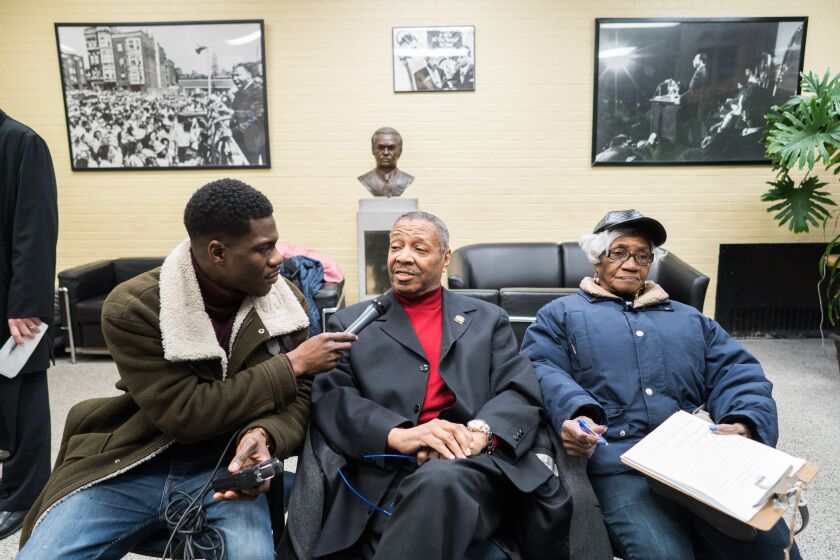MTV “True Life Crime” host Dometi Pongo knows what it’s like to lose close friends and see their memories reduced to headlines like “Man fatally shot while riding through Humboldt Park,” “Man fatally shot on South Side,” and “Woman fatally shot inside apartment in South Shore.”
As the host of MTV’s “True Life Crime,” which airs 8 p.m. on Tuesdays, Pongo aims to separate his series from the pack, an ambition that’s intentional — and, more importantly, personal.
He can recall how the press wrote about the killing of one of his friends, Guy Lopez, nicknamed “GQ,” who died in 2017.
“It makes you feel like the Fourth Estate should have a check, and accountability in a way, to humanize and tell genuine stories,” said Pongo, who previously worked for WGN Radio and WVON-AM (1690). “[Traditional media] seems to just brush past the stories when it comes to communities that don’t look like them. When it comes to [marginalized communities], you can take a case of someone from the majority population — a white woman or a shooting on the North Side — there’s this level of detail that’s given to her.
“When ‘GQ’ died, if you look up the story about his killing, it might have been five sentences. My brother is worth five sentences? When you see their life reduced to a few sentences, there’s something dehumanizing about it. I want to make sure I tell the full story if I ever talk about a crime that happened to somebody.”
A recent study authored by local nonprofit civic media organization City Bureau and the University of Texas at Austin’s Center for Media Engagement, named “Chicago News Landscape,” backs up Pongo’s claims.
The study found that South and West Side residents described feeling “underrepresented or poorly represented” by local news media coverage.
Pongo, who grew up on Chicago’s Southeast Side and later moved to south suburban Calumet City and graduated from T.F. North High School, says his passion for journalism didn’t initially jibe with what most West African parents want for their children.
“I grew up in an immigrant household,” said Pongo. “My parents came here from Ghana in the 1970s, and they were the embodiment of trying to figure out the American dream, and coming [to America] to try to make a way. I took a left turn by going into journalism. A lot of West African families, if you don’t become a doctor, or a lawyer, or an engineer you’re a failure.
“I tried that route; I worked in economics at Target headquarters and I felt unfulfilled. One day I randomly walked into the office and quit, came home, and turned on a radio station there. I found out that storytelling was my calling.”
The series, which is in its second season which debuted last month, has many more moving parts, Pongo says, than most true crime content.
“A lot of true crime stories — most of the ones that I’ve seen, maybe — are straight true crime shows,” said Pongo. “It’s about: Who did it? What happened? There’s a red herring, and then there’s a conclusion. I think ‘True Life Crime’ serves this unique function where you’ve got part true crime story, part social justice documentary.
“The Kenneka Jenkins episode, for example. We take a moment to contextualize why activists were protesting in Rosemont. It was because they were coming off the heels of the Laquan McDonald shooting, and off the heels of all of the police brutality that we see within marginalized communities.”
During the season one episode, Pongo dug into the nuance — and the lack thereof — surrounding the 2017 death of the 19-year-old Chicago woman, who was found dead in a hotel freezer in northwest suburban Rosemont.
“A little nuance that people don’t understand about our communities,” said Pongo. “People said, ‘[Kenneka] shouldn’t have been at the hotel party in the first place.’ For us, that was normal. That’s all I did in high school: Go to hotel parties. That’s what we did.”
And what is the takeaway from the Jenkins episode — and others?
“Sometimes, the culprit isn’t always what we think it is; that’s why context matters,” said Pongo.






